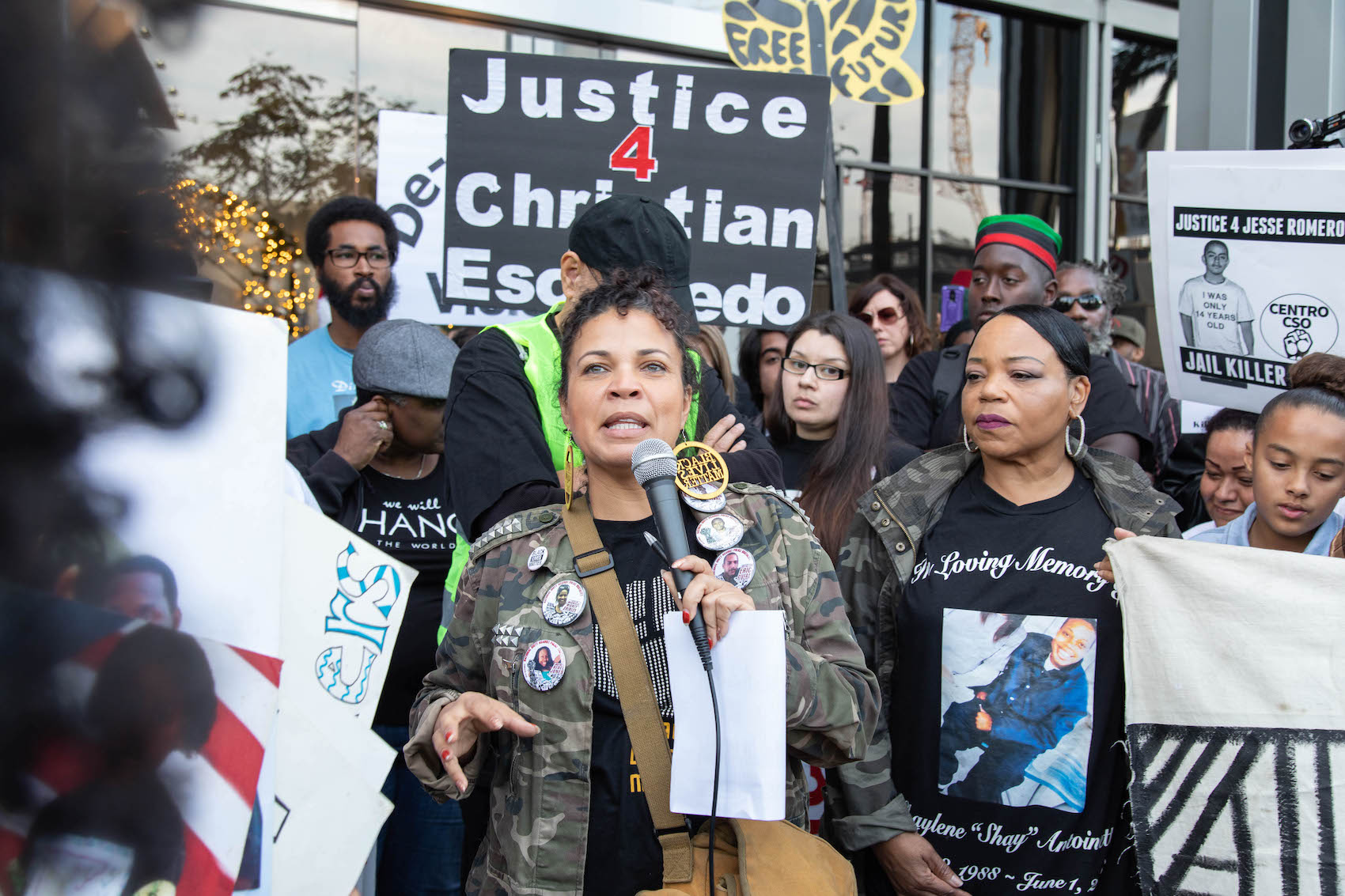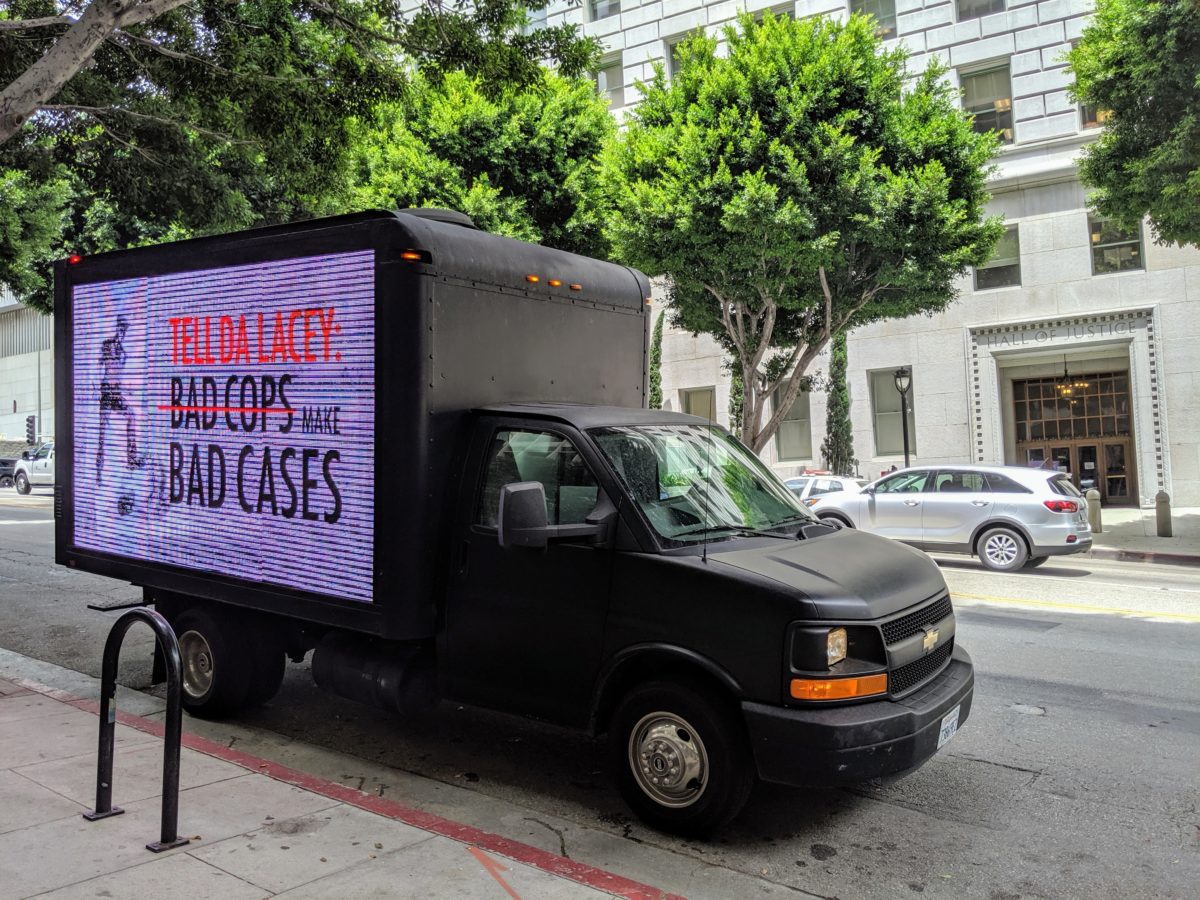When Cops Lie, Should Prosecutors Rely Upon Their Testimony At Trial?
In California, Texas and Florida, advocates sent letters to district attorneys, demanding that they refuse to work with officers with histories of misconduct.

Progressive advocates in Florida have written an open letter to State Attorney Brad King, calling on him to create a do-not-call list of officers who “exhibit racist or violent views.” It is the latest in a string of similar letters sent this month to district attorneys across the country.
The letter, published Wednesday, comes after The Plain View Project recently identified racist and violent Facebook posts by current and former Lake County sheriff’s deputies. The project surveils officers’ Facebook pages for racist or violent content.
“Those kind of views call into question an officer’s ability to do his or her work in an unbiased manner,” reads the letter, which was signed by faith leaders, ACLU of Florida, and several other organizations. “You should establish a public list of officers whom your office will not call on or rely on to prosecute cases because of their violation of the public trust.”
In a July 22 letter to Los Angeles District Attorney Jackie Lacey, more than 20 organizations—including the ACLU of Southern California and Black Lives Matter-LA—asked Lacey to compile a list of officers with “histories of misconduct, dishonesty, racism, or bias,” and then refuse to pursue cases brought by those officers or grant their search warrant requests.
“Relying on the word of an officer who cannot be trusted harms both the victim and the accused, destabilizing families, and compromising the integrity of our criminal justice system,” reads the letter.
“The absolute least [Lacey] could do is to say, if there are corrupt officers, they should not be used as witnesses,” said Melina Abdullah, co-founder of Black Lives Matter-LA.
The Justice Collaborative, of which The Appeal is a project, provided consultation to advocates on the Lake County and LA County letters.
In Texas, advocates sent a letter on July 19 to Harris County District Attorney Kim Ogg, asking her to create a public do-not-call list of officers who will not be called to testify. Those on the list, the signatories wrote, should include police officers “who have violated the public trust by lying, falsifying evidence, or making racist or violent statements.”
Several attorneys and organizations, including BLM-HTX, the Texas Organizing Project, and Alex Bunin, chief public defender for Harris County, have signed the letter.
“The prosecutor has a special role of doing justice and so this is consistent with that—getting the information out, being transparent about these issues that are important to the public as a whole,” Bunin told The Appeal.
Brady lists
Some prosecutors’ offices already maintain exclusion lists or Brady lists, named for the 1963 U.S. Supreme Court decision in Brady v. Maryland. The lists can include information related to officers’ truthfulness and misconduct, which defense counsel can use to impeach their credibility.
But the lists can vary in terms of criteria, public accessibility, and consequences for the officers. Somil Trivedi, a senior staff attorney with the ACLU, thinks that variation is a problem. Consistency and transparency, Trivedi said, are essential to maintaining the efficacy and integrity of Do Not Call lists. Officers should be made aware of the criteria used, and an independent body, such as a prosecutorial oversight board, should review the lists, he said.
“We want to make sure those lists are as objectively accurate as possible,” Trivedi said. “Everyone should know exactly how you get on it.”
Ogg’s office maintains what it calls a disclosure database, according to Harris County district attorney’s office spokesperson Dane Schiller. The database includes witnesses, such as police and forensic experts, who could be called in their official capacity to testify on behalf of the state, according to Schiller. Criteria for placement in the database includes, he wrote in an email to The Appeal, evidence of misconduct or dishonesty. According to Schiller, the information is shared with defense attorneys as necessary, but the database is not public.

In St. Louis, Circuit Attorney Kimberly Gardner has an exclusion list of officers from whom the DA’s office will not take cases. The identities of the officers have not been shared with the public. In June, Gardner announced that an additional 22 officers would be placed on this list after they were identified by The Plain View Project.
“When a police officer’s integrity is compromised in this manner, it compromises the entire criminal justice system and our overall ability to pursue justice,” Gardner said in a statement.
Last week in California, Orange County District Attorney Todd Spitzer announced he was placing four sheriff’s deputies on his Brady list for their role in a jailhouse informant scandal. For decades, the sheriff’s department ran a secret program in which they used jailhouse informants to solicit statements from suspects, even though they were represented by counsel. Defense counsel are notified if an officer on the Brady list will be taking the stand in their case, according to the Orange County Register.
And on July 25, in Florida, State Attorney Aramis Ayala announced that her office will implement a new Brady policy in which a committee will determine whether officers should be placed on a Brady alert list or a Brady exclusion list. For a “recurring witness” on the alert list, prosecutors are instructed to “proceed with caution or may even need permission to prosecute the witness’s case,” according to Ayala’s press release. Those on the exclusion list are banned from testifying as a state witness for the state attorney’s office. The committee is made up entirely of staff from the state attorney’s office, which prosecutes cases in Orange and Osceola counties.
The alert and exclusion lists are “still being completed,” Eryka Washington, the office’s public information officer, wrote in an email to The Appeal. Both lists, she wrote, “will be available for whomever to see through public record.”
Challenges ahead
Police unions have pushed back against efforts to disclose misconduct information. For instance, in 2016, Sheriff Jim McDonnell tried to give the Los Angeles DA’s office a secret list, kept by the sheriff’s department, of 300 deputies who had been accused of misconduct. The Association of Los Angeles Deputy Sheriffs sued to stop McDonnell, citing privacy laws. The case is currently before the state Supreme Court.
Also in California, police unions are challenging a state law that requires police departments to disclose records involving incidents of dishonesty, extreme use of force, officer involved shootings, and sexual assault. The unions are asking judges to rule that the new disclosure requirements only apply to records produced after Jan. 1, when the law went into effect. In March, an appellate court ruled against the Walnut Creek Police Officers’ Association, finding that the law applies to records produced before Jan. 1.
Police departments have been reticent to comply with the new law, according to Los Angeles County Public Defender Ricardo García. “Some of the misconduct information in an officer’s personnel file has become public, but police agencies have been slow to comply with public record act requests or deny them outright indicating that they are ‘too broad,’” García wrote in a statement to The Appeal.
Opposition from police departments, and their unions, is why do-not-call lists are needed, advocates say; prosecutors can hold officers accountable when their departments don’t.
“This is a tool that is made necessary because of the failure of internal police accountability mechanisms,” said Carl Takei, a senior staff attorney with the ACLU’s Trone Center for Justice and Equality.
But district attorneys need to be held accountable, too, said Abdullah of Black Lives Matter-LA. They have prioritized the interests of police over their duty to community members, she said, and do-not-call lists are a modest but critical step to challenge that allegiance.
“Prosecutors when they go into the court, they’re called ‘the people,’ but they really function as the policing system,” said Abdullah. “They don’t function as the people. We’d like to disrupt that.”
